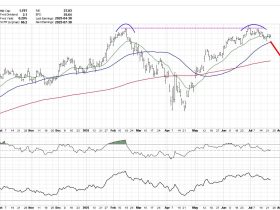HSBC has become the first major UK lender since the financial crisis to offer homebuyers loans worth up to 6.5 times their salary, in a move signalling the loosening of mortgage lending rules across the banking sector.
The new deal, launched this week for HSBC Premier account holders, raises the maximum income multiple available on residential loans beyond that of any other high street bank. To qualify, customers must have at least a 10 per cent deposit and either earn £100,000 a year or hold the same amount in savings or investments with the bank.
The offer marks a significant shift in mortgage policy for the lender, which was once among the market’s most conservative. In September, HSBC increased its income cap for first-time buyers to 5.5 times salary; its latest change extends that to select high earners, outpacing rivals such as Nationwide, which lends up to six times income through its Helping Hand scheme, and Halifax, which caps at 5.5 times for borrowers with larger deposits.
Mortgage broker Aaron Strutt, from Trinity Financial, said the move shows how competitive the market has become. “HSBC has gone from being one of the more conservative lenders to being more generous than virtually any other bank or building society,” he said. “This income stretch mortgage is punchy to say the least, and borrowers will really need to think carefully before taking on such a large amount.”
The move comes as the Bank of England, the Financial Conduct Authority (FCA) and the Treasury encourage banks to lend more in an effort to stimulate home ownership. The average house in England is now worth 7.7 times the average full-time salary, and 5.9 times in Wales, pricing many first-time buyers out of the market.
Lending rules were tightened in 2016 to prevent a repeat of the risky borrowing that preceded the 2008 financial crisis. Under those rules, no more than 15 per cent of a bank’s new mortgages can exceed 4.5 times a borrower’s income. In the first quarter of this year, roughly 9.7 per cent of loans breached that level, according to Bank of England data.
The Bank began a review of the 15 per cent cap in July and has since allowed lenders to apply for temporary exemptions, provided the overall industry average remains below the limit. At the same time, new FCA guidance has led many lenders to reduce the “stress test” rates used to check whether borrowers could afford higher repayments, effectively allowing larger loans.
While banks argue that higher income multiples are necessary to reflect rising property prices, some experts warn the government risks fuelling unsustainable borrowing. James Daley, of consumer group Fairer Finance, said the strategy could store up long-term problems.
“I’m very worried about the current policy priorities being driven by the Treasury,” Daley said. “We all want more people to get on the housing ladder, but we could be baking in long-term risks for both borrowers and lenders if we solve the problem by stretching affordability ever further.”
He added that the real issue lies in stagnant wage growth and persistently high property values. “The two fundamental problems holding people back are that real wages have flatlined since the financial crisis, while property prices have continued to rise,” he said.
HSBC insisted that all loans will remain subject to stringent affordability checks and that the new limit is intended to support financially secure customers struggling to bridge the widening gap between salaries and house prices.
“We remain committed to responsible lending,” the bank said. “All applications are assessed to ensure customers can comfortably afford their mortgage, both now and in the future.”
HSBC’s decision reflects a broader shift among UK lenders towards more flexible mortgage criteria as regulators signal a willingness to balance caution with accessibility. With affordability stretched to record levels, banks are under pressure to keep lending volumes up — but critics fear the pendulum may be swinging too far back towards pre-crisis habits.
As the Bank of England continues to weigh up whether to relax its lending caps further, HSBC’s move is likely to set a new benchmark — and reignite debate over how to make home ownership sustainable in an era of stagnant wages and ever-rising property prices.
Read more:
HSBC breaks post-crisis barrier with 6.5-times salary mortgages for top-tier customers











